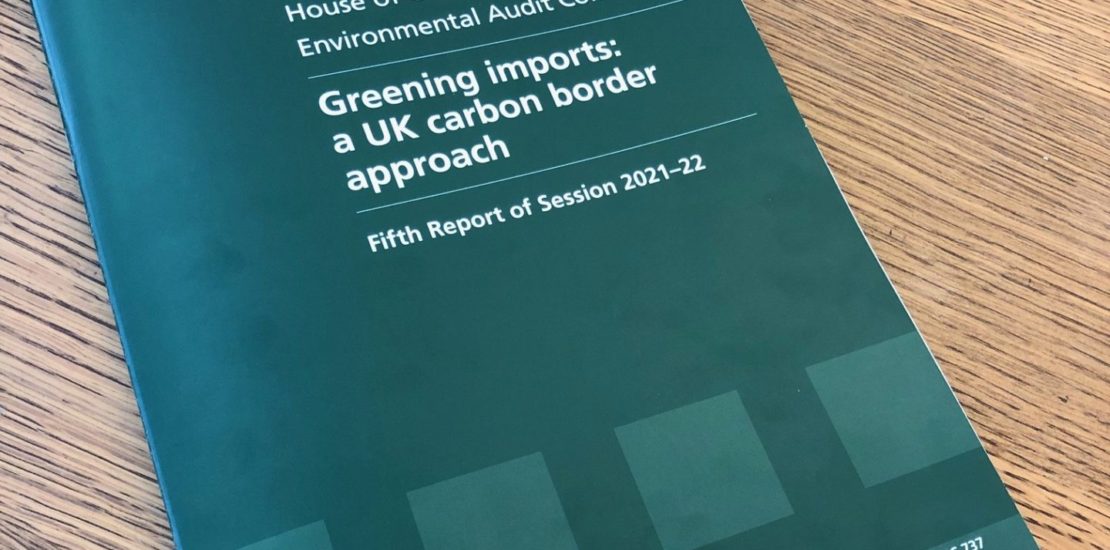- 04/04/2022
- Posted by: Valerie Vaz MP
- Category: News

On 4 April 2022, the Environmental Audit Committee published our Report “Greening imports, a UK carbon border approach”. Our Report recommends that the Government develop a Carbon Border Adjustment Mechanism within this decade to prevent efforts to decarbonise the UK being circumvented by companies moving their operations to countries with weak climate legislation.
The summary of Recommendations of the Report are as follows:
“An effective carbon price is a crucial lever to combat climate change, and requires an effective anti-carbon leakage approach to enable this; the Government’s current approach, principally the allocation of free emissions trading scheme (ETS) allowances, is insufficient to drive effective decarbonisation. The current situation also means that the UK applies a carbon price to domestic production but not to imports, which make up 43% of the UK’s consumption emissions.
A policy response in the form of a UK carbon border approach is needed. This should include a carbon border adjustment mechanism (CBAM) to ensure an equivalent carbon price is applied to imports as is applied to domestic production, as part of a co-ordinated set of policies, including product standards. We recommend that the Government commence work on this UK carbon border approach immediately, to enable its implementation during the 2020s.
The EU is currently developing plans for a CBAM, which it intends to have in place by 2023; it is important that the Government articulate how it intends to work with stakeholders on, and communicate progress towards, the actions it is taking to ensure no adverse impacts to the UK. While multilateral solutions remain the most effective way to address carbon leakage, the process to agree these is lengthy, so unilateral action is essential in the short-term.
Unilateral action can also spur co-operation on multilateral measures and incentivise countries to strengthen their own carbon pricing and decarbonisation measures. The Government should continue to pursue multilateral solutions, including commencing action towards linking the UK and EU ETS, at the same time as developing its own carbon border approach.
The UK’s carbon border approach must be aligned with the UK’s international commitments, and adhere to World Trade Organisation rules and the principle of ‘common but differentiated responsibilities and respective capabilities’ under the Glasgow Climate Pact in respect of low- and middle-income countries.
When designing the UK’s carbon border approach, the Government should ensure design choices are led by clearly articulated objectives; engage with trade partners; consult with industry sectors; include a strategy to build public awareness and consensus on the need for the approach; carry out assessments to understand any impact on consumers; ensure the carbon border approach is aligned with existing environmental, trade, development and fiscal policy; and establish a plan for monitoring the impact of the approach once implemented.”
The Report can be viewed in full on the website of the Environmental Audit Committee: Environmental Audit Committee – Publications – Committees – UK Parliament.

